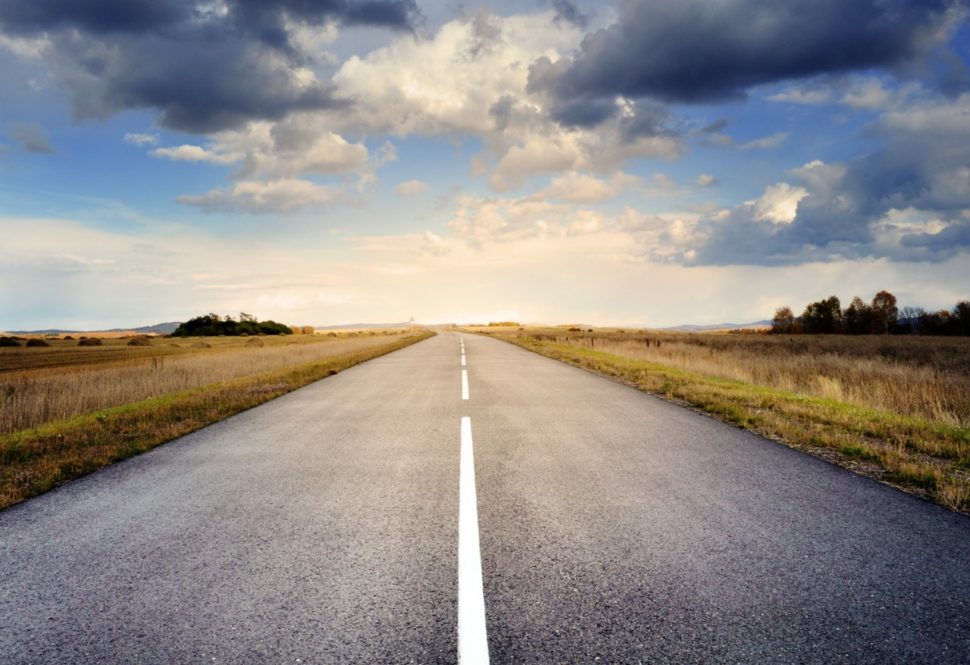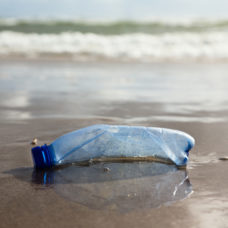Plastic waste, a significant source of environmental pollution, is jeopardizing marine ecosystems and choking the whole planet.
Reduction of plastic product consumption, developing plastic bio substitutes, and other more radical measures, like ocean cleanup initiatives, all contribute to the fight against plastic. But they’re not enough, and every move counts toward eradicating the problem.
Plastic waste is either incinerated, disposed of in landfills, or recycled. However, most plastic junk doesn’t get recycled and ends up as marine debris.
Instead of recycling plastic into new products that would most likely end up as trash, what if we turn plastic into roads?
Plastic Roads, or Green Asphalt
Incorporating plastic into roads makes them more durable compared to conventional ones.
According to VolkerWessels, a Dutch construction company, roads made of recycled plastic have a 50-year lifespan, at least, around three times longer than traditional roads.
Plastic roads could also withstand extreme temperatures that range from -40 to 176 degrees Fahrenheit.
In addition, what’s more important, building plastic roads means less carbon dioxide and greenhouse gases released into the air. Bitumen that otherwise would be used in road asphalt is replaced by plastic.
Now, some countries are experimenting with the concept of plastic roads.
The Dow Chemical Company is one of the largest petrochemical companies in the world. Last month, Dow joined Shell, ExxonMobil, BASF, Procter & Gamble, and other big plastic firms in an alliance that pledged the mobilization of $1billion to fight plastic pollution.
As a significant producer, user, and seller of plastic products, Dow adheres to the industry’s defense strategy according to which they don’t intend their plastic products to end up in the ocean as waste.
Taking responsibility for its plastic products and aware of the stakes, Dow has shepherded several plastic road projects in Asia.
It started in 2017 as Dow entered into a collaboration with the Indonesian government that aims to reduce marine plastic pollution by 70 percent by 2025.
Dow Packaging and Specialty Plastics’ technical know-how helped mix 3.5 metric tons of plastic waste into the asphalt and build a 1.8-kilometer-long road.
In the Indian cities of Bangalore and Pune, volunteers collected plastic waste. They took it to recyclers, who then sent processed plastic material to asphalt plants to replace bitumen in the asphalt mixture. So, 100 metric tons of plastic waste was diverted from landfills to enter into the building of 40 kilometers of roads in the two cities.
Read More: New Ocean Cleanup Project Could Eradicate 50% of Ocean Plastic in 5 Years
In 2018, the Dow Thailand Group also struck a deal with local authorities in Thailand to provide a “valuable end of life solution” to ensure plastic waste doesn’t end up in the ocean.
To demonstrate the viability of the concept in the U.S., Dow built two plastic roads in its facility in Freeport, Texas, as a pilot project.
These two new roads are built using Polymer Modified Asphalt (PMA) and Post-consumer Recycled Plastic (PCR) with 2,600 feet of combined length.
Now open for traffic, Dow’s own two plastic roads “used 1,686 pounds of recycled linear low-density polyethylene (LLDPE) plastic —the equivalent weight of 120,000 plastic grocery bags.”



















We shouldn’t have to store our plastic away in roads or buildings or under our floorboards. It’s time that governments took more action in banning plastics. There are already plenty of biodegradable alternatives, the only thing stopping it is greed.